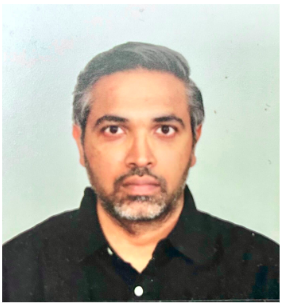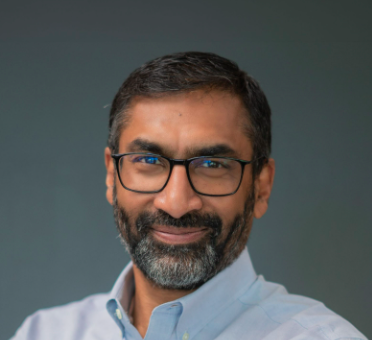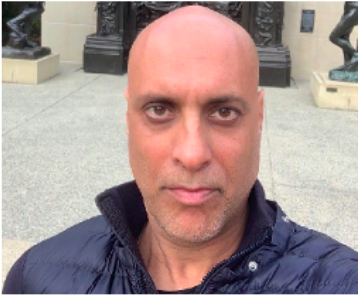
Indian Institute of Technology, Hyderabad
| Home | CFP | Directions |
In an era where artificial intelligence (AI) and machine learning (ML) are reshaping the landscape of computing, both networking and cryptography face significant challenges. Traditional networking solutions like Ethernet, InfiniBand, RDMA, RoCE, and TCP are proving insufficient to meet the demands of distributed AI/ML training workloads. Similarly, current cryptographic algorithms are threatened by the advent of quantum computing, necessitating the exploration of quantum-resistant methods. This workshop will provide a comprehensive overview of these challenges and explore current solutions, highlighting their limitations in addressing AI/ML complexities such as bandwidth bottlenecks, latency sensitivities, and security threats.
We will delve into the latest advancements in networking technologies designed to overcome these limitations, including Ultra Ethernet and Google’s Falcon protocol, as presented in our keynote sessions. The workshop will also address Fully Homomorphic Encryption (FHE) and its role in enabling universal computation on encrypted data, which will be covered in depth during our technical sessions. Additionally, the impact of quantum computing on security will be discussed, introducing post-quantum cryptographic methods designed to withstand these new threats. Participants will gain practical insights through our technical sessions on post-quantum cryptography and its applications.
The workshop will feature two deep dives: one focusing on data plane technologies and the other on cryptography in the quantum era. These sessions will provide deep insights into cutting-edge technologies and techniques, enhancing participants' understanding and skills in modern networking and cryptographic methods.By the end of the workshop, participants will have a solid understanding of the advanced networking and security technologies essential for supporting the AI/ML era, equipped with both theoretical knowledge and practical skills.
Note
This workshop is a part of ICDCN (International Conference on Distributed Computing and Networking) hosted in IIT , Hyderabad. Registration to the conference gives access to this workshop and all workshops part of the conference.
| Time | Event | Speakers |
|---|---|---|
| 09:00 - 10:00 | ICDCN Keynote | - |
| 10:00 - 10:15 | Opening Remark - MLNetsec | - |
| 10:15 - 11:00 | Keynote 1: Evolution of Ethernet Transport for AI and HPC Networking | Dr. Rinku, IIIT Delhi and Satananda, Marvell |
| 11:00 - 11:30 | Coffee Break | - |
| 11:30 - 12:15 | Keynote 2: The need to re-imagine networking for AI: Why we need a clean slate approach | Shrijeet Mukherjee, Co-founder Enfabrica |
| 12:15 - 13:00 | Keynote 3: FHE: System for Universal Computation on Encrypted Data | Rohit Khera, Marvell |
| 13:00 - 14:00 | Lunch Break | - |
| Time | Event | Speakers |
|---|---|---|
| 14:00 - 14:30 | Paper talk: Detecting adversarial samples using kernel density feature extractor in medical image Authors: Suman D, Pankaj K, Mahesh C (NIT-Sikkhim) |
TBD |
| 14:30 - 15:10 | Keynote 4: Understanding system optimizations for GenAI workloads | Dr Priyanka Naik, IBM research |
| 15:10 - 15:30 | Introducing Accelerated Compute - Window into the hand-on sessions and round table discussions | Abed Kamaluddin, Marvell |
| 15:30 - 16:00 | Panel: AI, Networking & Security: Academia-Industry Research Opportunities | - |
| 16:00 - 16:30 | Coffee Break | - |
| 16:30 - 17:30 | Hands-on Session 1: Introducing AI/ML Accelerators | Srikanth Y, Marvell |
| 17:30 - 18:30 | Hands-on Session 2: Introducing Programmable Packet and Crypto Accelerators | Venkata R, Marvell |
| 18:30 - 18:45 | Closing Remark - MLNetsec | - |
Exploration of challenges in networking for AI/ML workloads, future protocol developments, and advancements such as Ultra Ethernet and Google's Falcon protocol. Includes a discussion on simulation tools and community efforts from IIIT-D.

Dr. Rinku Shah is currently an Assistant Professor in the CSE department at Indraprastha Institute of Information Technology, Delhi (IIITD). She earned her PhD from IIT Bombay in February 2021. Her research interests lie in the broad area of networked systems with applications in security and machine learning. She has published her research at reputed conference venues such as ACM SOSR, IEEE ICNP, IEEE/IFIP Networking, ACM SIGCOMM FFSPIN, and ACM APNet.

Satananda Burla is a Senior Principal Engineer at Marvell, specializing in the research and development of cutting-edge networking and storage infrastructure solutions tailored for AI, cloud, and enterprise markets. He actively represents Marvell in technical forums, including the OPI Technical Steering Committee (TSC), OASIS VIRTIO, and the Ultra Ethernet Consortium (UEC), where he has contributed to the development of key specifications.
Shrijeet Mukherjee will talk through the various stages that interconnects have taken in the lead-up to the current designs for networking for AI/ML and high performance systems. The talk will cover what aspects are important and how to evaluate the efficacy of various methods and delve into the unique solutions that are presented by the Enfabrica ACF-S super-nic.

Shrijeet Mukherjee, Co-Founder and Chief Development Officer at Enfabrica, leads innovations in software and system/hardware interconnects for modern data centers. With 30+ years of experience, he has developed high-performance systems, including NUMA graphics at SGI, the first SmartNIC at Cisco UCS, and advancements in Open Networking at Cumulus Networks. He also contributed to Google’s networking architectures. A Linux NetDev Society Board member and Enfabrica’s representative on the Ultra Ethernet Consortium’s Technical Advisory Committee, Shrijeet Mukherjee holds 50+ patents and an MS in Computer Science from the University of Oregon.
An in-depth discussion on fully homomorphic encryption (FHE) and its applications in secure private computation and inference on encrypted data.

Rohit Khera is a Distinguished Engineer at Marvell Technologies with a strong background in applied cryptography, protocols, numerical physics, and software. He has worked extensively on lattice cryptography, fully homomorphic encryption (FHE), multiparty computation, and succinct zero-knowledge arguments. His work focuses on optimizing sub-operations in FHE schemes, such as rescaling/re-linearization of tensored ciphertexts, boosted key switching, automorphisms on packed ciphertexts, and the representation of non-linear functions in encrypted domains for ML inference.
The talk will provide a brief of current infrastructure for GenAI workloads and efficient utilization of the infrastructure. We will also discuss research efforts around orchestrating these workloads on a cloud infrastructure and other research opportunities from a system perspective.

Priyanka is a Research Scientist at IBM India Research Lab and is part of the GenAI platform team. Priyanka's prior research explored the space of cloud deployment, networking and observability of microservices such as network functions and extending the same for multi cloud deployments. Prior to joining IBM, she received her Ph.D. from IIT Bombay, India. She has been a speaker for multiple tutorials and a co-author to a cloud networking book.
Trainer:
Srikanth Yalavarthi –
Principal Engineer, Machine Learning Team, Marvell Technology
Expertise: ML drivers, DPDK’s Machine Learning library, and ML in networking.
Trainer:
Venkata Ravichandra Mynidi –
Senior Principal Engineer, Accelerated Solutions Group, Marvell Technology
Expertise: Network security stacks, OpenSSL, VPP, DPDK, and TCP/UDP transport stacks.